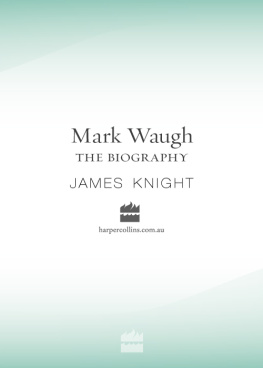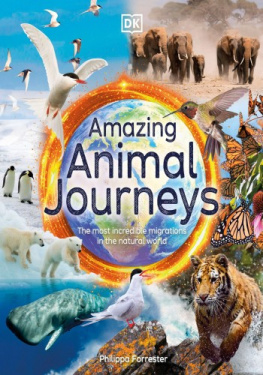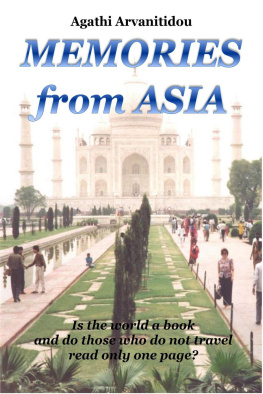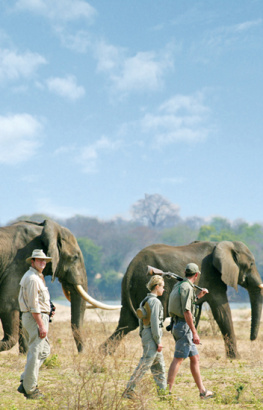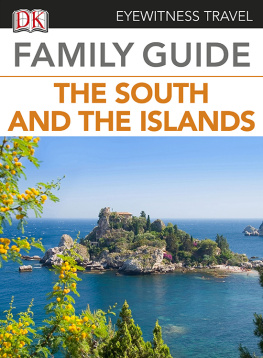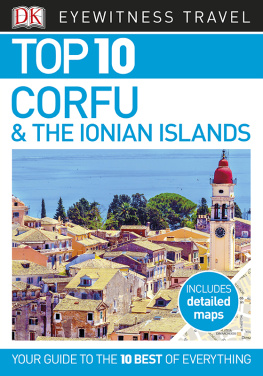Waugh - Hot countries : a travel book
Here you can read online Waugh - Hot countries : a travel book full text of the book (entire story) in english for free. Download pdf and epub, get meaning, cover and reviews about this ebook. City: Array, year: 2011, publisher: Bloomsbury Publishing;Bloomsbury Reader, genre: Detective and thriller. Description of the work, (preface) as well as reviews are available. Best literature library LitArk.com created for fans of good reading and offers a wide selection of genres:
Romance novel
Science fiction
Adventure
Detective
Science
History
Home and family
Prose
Art
Politics
Computer
Non-fiction
Religion
Business
Children
Humor
Choose a favorite category and find really read worthwhile books. Enjoy immersion in the world of imagination, feel the emotions of the characters or learn something new for yourself, make an fascinating discovery.

- Book:Hot countries : a travel book
- Author:
- Publisher:Bloomsbury Publishing;Bloomsbury Reader
- Genre:
- Year:2011
- City:Array
- Rating:3 / 5
- Favourites:Add to favourites
- Your mark:
- 60
- 1
- 2
- 3
- 4
- 5
Hot countries : a travel book: summary, description and annotation
We offer to read an annotation, description, summary or preface (depends on what the author of the book "Hot countries : a travel book" wrote himself). If you haven't found the necessary information about the book — write in the comments, we will try to find it.
First published in 1930, this discursive and absorbing travel-book offers, as the author says in his new Foreword, a picture of a way of living that exists no longer.
Hot Countries tells of a series of journeys in the Far East, the West Indies and the South Sea Islands when he was a young and light-hearted novelist seeking colour, romance and adventure.
Waugh: author's other books
Who wrote Hot countries : a travel book? Find out the surname, the name of the author of the book and a list of all author's works by series.
Hot countries : a travel book — read online for free the complete book (whole text) full work
Below is the text of the book, divided by pages. System saving the place of the last page read, allows you to conveniently read the book "Hot countries : a travel book" online for free, without having to search again every time where you left off. Put a bookmark, and you can go to the page where you finished reading at any time.
Font size:
Interval:
Bookmark:
ALEC WAUGH
A Travel Book

This electronic edition published in 2011 by Bloomsbury Reader
Bloomsbury Reader is a division of Bloomsbury Publishing Plc, 50 Bedford Square, London WC1B 3DP
Copyright Alec Waugh
First published 1930 by Chapman & Hall Ltd.
The moral right of author has been asserted
All rights reserved
You may not copy, distribute, transmit, reproduce or otherwise make available this publication
(or any part of it) in any form, or by any means (including without limitation electronic, digital,
optical, mechanical, photocopying, printing, recording or otherwise), without the prior written
permission of the publisher. Any person who does any unauthorised act in relation to this
publication may be liable to criminal prosecution and civil claims for damages
ISBN: 9781448200092
eISBN: 9781448201419
Visit www.bloomsburyreader.com to find out more about our authors and their books
You will find extracts, author interviews, author events and you can sign up for
newsletters to be the first to hear about our latest releases and special offers
This book was originally published in 1930 under the title The Coloured Countries. It is the account of a series of journeys that I made in the Far East, the West Indies and among the South Sea Islands between 1926 and 1929 when I was myself in my later twenties.
Travel in those years was pleasant, easy and cheap. Railways and steamship lines had recently made accessible a number of out-of-the-way places that a few years earlier could only have been reached with great difficulty and considerable financial cost, while the aeroplane had not yet brought them within range of the nine-day vacationist. There were no currency regulations then. There was no trouble over visas. Ships were not crowded. You could always get a cabin to yourself. The contemporary reader of this book may well imagine me to have been a wealthy person. Far from it. I had no private income and was earning with my pen under twelve hundred pounds a year. But in June 1926 I was able to buy from the Messageries Maritimes a round-the-world ticket that included four months of first-class accommodation for 163. During a five months trip in the West Indies I spent under 400. To a fiction-writer like myself who had no ties, who could carry his office with him, world travel offered not only glamour, romance, adventure, what you will, but a practical and economical solution of many of the problems of livelihood. I was lucky to have been born when I was. I had access to a great deal of fun during the years when I was most capable of enjoying it.
To-day, of course, all that is over. The world is divided into zones. There are currency regulations, visa problems, and a lack of transport. Passages can only be booked with great difficulty, and journeys made in great discomfort. Every hotel in the world is overcrowded. It will be many years before free and light-hearted travel is possible again.
Had a new edition of this book been issued, say, in 1938, I should have been tempted to qualify a number of the comments, to indicate which prophecies had been fulfilled and which had not, to tell what had happened subsequently to certain of the characters, to describe (for instance) the death of the old Judge at Dominica, but to-day in 1947 in a world so different that we might be existing upon another planet, I thought it better to offer Hot Countries to a new generation of readers frankly as a period piece, unaltered as I wrote it, a picture of a way of living that exists no longer.
ALEC WAUGH
At Sea
THE first question to ask about a travel book, I have heard it said, is, Can the author go back to the places he has described? Usually he cant. Those books that are more than bread and butter letters addressed to the people from whom their author has received hospitality, have not brought the novelist into good repute. I have noticed at times a quizzical look in the eyes of the officials and planters to whom I have been introduced.
What, another of you fellows coming here to write us up?
Well, that is not a thing that I have ever done. I have never gone to a place to write it up. I have travelled for the sake of travel. Novel writing has this advantage over most other jobs, that your office premises are portable. One way and another I have covered a good many miles, calling in at the places where I have friends or that I have felt curious about, carrying on with my job of story-telling in cabins and hotel bedrooms, mingling as I should in London with the life that I have found about me.
And if you travel in that way you cannot write exhaustively of subjects. This book is a narrative of personal impressions. It is like casual fireside talk when the stream of anecdote and reminiscence carries you from sea to sea, from continent to continent. Penang reminds you of Tahiti, Dominica of the Siamese teak forests; Haiti recalls the mosquito-hung lagoons of the New Hebrides. I have written as I have travelled. My plan has been to have no plan.
It began, I suppose, in the spring of 1925, with the reading of The Trembling of a Leaf. I was staying at Diano Marina with G. B. Stern, and through an entire evening Geoffrey Holdsworth and I discussed The Fall of Edward Barnard, the story of a young Chicagoan who leaves America with the intention of making a fortune in the South Seas, only to surrender his ambition in an atmosphere of soft glances and soft airs. For three hours we discussed the problem of the beachcomber. Why, we asked ourselves, should man work himself in a cold inequitable climate towards an early grave when so little a while away livelihood lay ready to his hand? Why make life difficult when it might be easy? Why avoid a sunlit leisure? Did it really profit a man that he should make fortunes in Lombard Street when copra can be sold at a few francs a bag on the palm-fringed edge of a lagoon?
That started it. For on my return to London, a fortnight later, I was met by Petre Mais exuberant curiosity.
Now whats all this I hear from Geoffrey Holdsworth about you and the South Sea Islands?
I stared blankly. What, indeed?
I hear, he went on, that you and he sit up all night discussing them, and that youve made up your mind to settle there.
Hardly that.
Yould like to, though.
If theres a place, I said, where one can live on thirty thousand words a year, its well worth while having a look at it.
Next morning the readers of the Daily Graphic were informed that on the previous day Mr. Londoner had lunched with Mr. Alec Waugh, who could talk about nothing except the South Sea Islands, which he was planning to tour shortly. That settled it. The snippet is the only part of a newspaper that is really read. You can have your novel noticed in reviews of a columns length, in paper after paper, and only such of your friends as have received a presentation copy of it will be aware that it is out. On the other hand, the inclusion of your name in the list of guests at a raided night club is certain to be seen by everyone. There is no limit to the power of the paragraph. It is the one part of a mornings paper that is not dead by lunch-time. As the Buddhists conceive immortality it is immortal. It dies but it is re-born. It is the candle from which lamps are lit. During the next few weeks every mention of me in the press referred to a Mr. Waugh, who was shortly to desert London for the South Sea Islands. I found myself included in leaderettes on The Lure of the Pacific. Men came up to me in my club with a Look here, about this trip of yours. I heard so much talk about the Islands that I had to buy an atlas to find out where Tahiti was.
Font size:
Interval:
Bookmark:
Similar books «Hot countries : a travel book»
Look at similar books to Hot countries : a travel book. We have selected literature similar in name and meaning in the hope of providing readers with more options to find new, interesting, not yet read works.
Discussion, reviews of the book Hot countries : a travel book and just readers' own opinions. Leave your comments, write what you think about the work, its meaning or the main characters. Specify what exactly you liked and what you didn't like, and why you think so.

